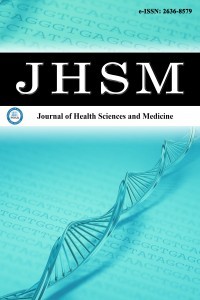1.
Huh S. Are ChatGPT’s knowledge and interpretation ability comparable to those of medical students in Korea for taking a parasitology examination?: a descriptive study. J Educ Eval Health Prof. 2023;20:1.
2.
Keser G, Pekiner FN. Attitudes, perceptions and knowledge regarding the future of artificial intelligence in oral radiology among a group of dental students in Turkey: a survey. Clin Exp Health Sci. 2021;11(4):637-641.
3.
Yüzbaşıoğlu E. Attitudes and perceptions of dental students towards artificial intelligence. J Dent Educ. 2021;85(1):60-68.
4.
Sur J, Bose S, Khan F, Dewangan D, Sawriya E, Roul A. Knowledge, attitudes, and perceptions regarding the future of artificial intelligence in oral radiology in India: a survey. Imaging Sci Dent. 2020;50(3):193-198.
5.
Thurzo A, Strunga M, Urban R, Surovková J, Afrashtehfar KI. Impact of artificial intelligence on dental education: a review and guide for curriculum update. Educ Sci. 2023;13(2):150.
6.
Gilson A, Safranek CW, Huang T, et al. How does ChatGPT perform on the united states medical licensing examination? The implications of large language models for medical education and knowledge assessment. JMIR Med Educ. 2023;9(1):e45312.
7.
Cascella M, Montomoli J, Bellini V, Bignami E. Evaluating the feasibility of chatgpt in healthcare: an analysis of multiple clinical and research scenarios. J Med Syst. 2023;47(1):33.
8.
Ollivier M, Pareek A, Dahmen J, et al. A deeper dive into ChatGPT: history, use and future perspectives for orthopaedic research. Knee Surg Sports Traumatol Arthrosc. 2023;31(4):1190-1192.
9.
Ding H, Wu J, Zhao W, Matinlinna JP, Burrow MF, Tsoi JK. Artificial intelligence in dentistry-a review. Front Dent Med. 2023;4:1085251. doi: 10.3389/fdmed.2023.1085251
10.
Agrawal P, Nikhade P. Artificial intelligence in dentistry: past, present, and future. Cureus. 2022;14(7):e27405.
11.
Nguyen TT, Larrivee N, Lee A, Bilaniuk O, Durand R. Use of artificial intelligence in dentistry: current clinical trends and research advances. J Can Dent Assoc. 2021;87(l7):1488-2159.
12.
Park SH, Do KH, Kim S, Park JH, Lim YS. What should medical students know about artificial intelligence in medicine? J Educ Eval Health Prof. 2019;16:18.
13.
Eysenbach G. The role of ChatGPT, generative language models, and artificial intelligence in medical education: a conversation with ChatGPT and a call for papers. JMIR Med Educ. 2023;9(1):e46885. doi: 10.2196/46885
14.
Fatani B. ChatGPT for future medical and dental research. Cureus. 2023;15(4):e37285. doi: 10.7759/cureus.37285
15.
Khurana S, Vaddi A. ChatGPT from the perspective of an academic oral and maxillofacial radiologist. Cureus. 2023;15(6):e40053. doi: 10.7759/cureus.40053
16.
Alkaissi H, McFarlane SI. Artificial hallucinations in ChatGPT: Implications in scientific writing. Cureus. 2023;15(2):e35179. doi: 10.7759/cureus.35179
17.
Ali SR, Dobbs TD, Hutchings HA, Whitaker IS. Using ChatGPT to write patient clinic letters. Lancet Digit Health. 2023;5(4):e179-e181. doi: 10.1016/S2589-7500(23)00048-1
18.
Salvagno M, Taccone FS, Gerli AG. Can artificial intelligence help for scientific writing? Crit Care. 2023;27(1):75. doi: 10.1186/s13054-023-04380-2

